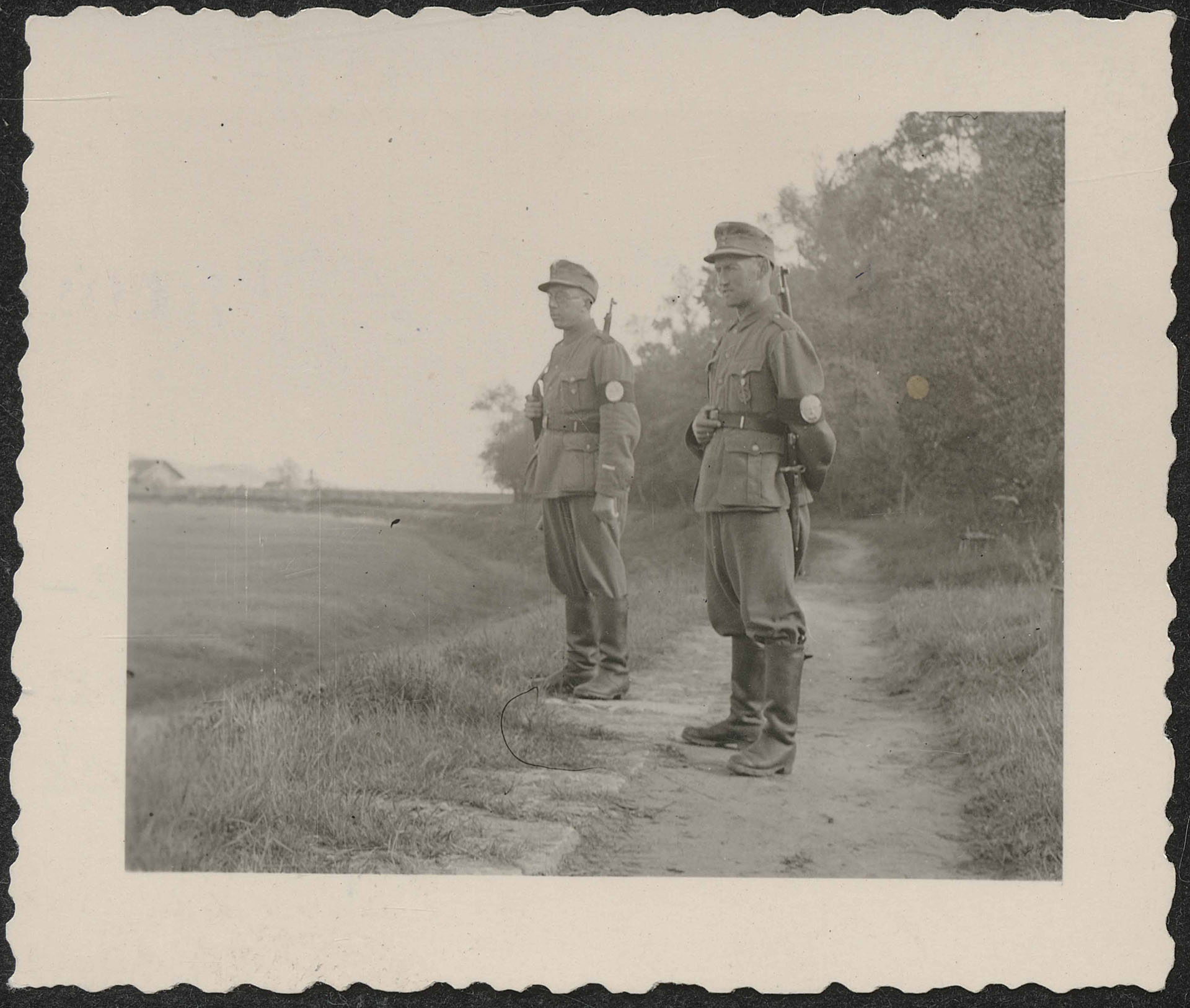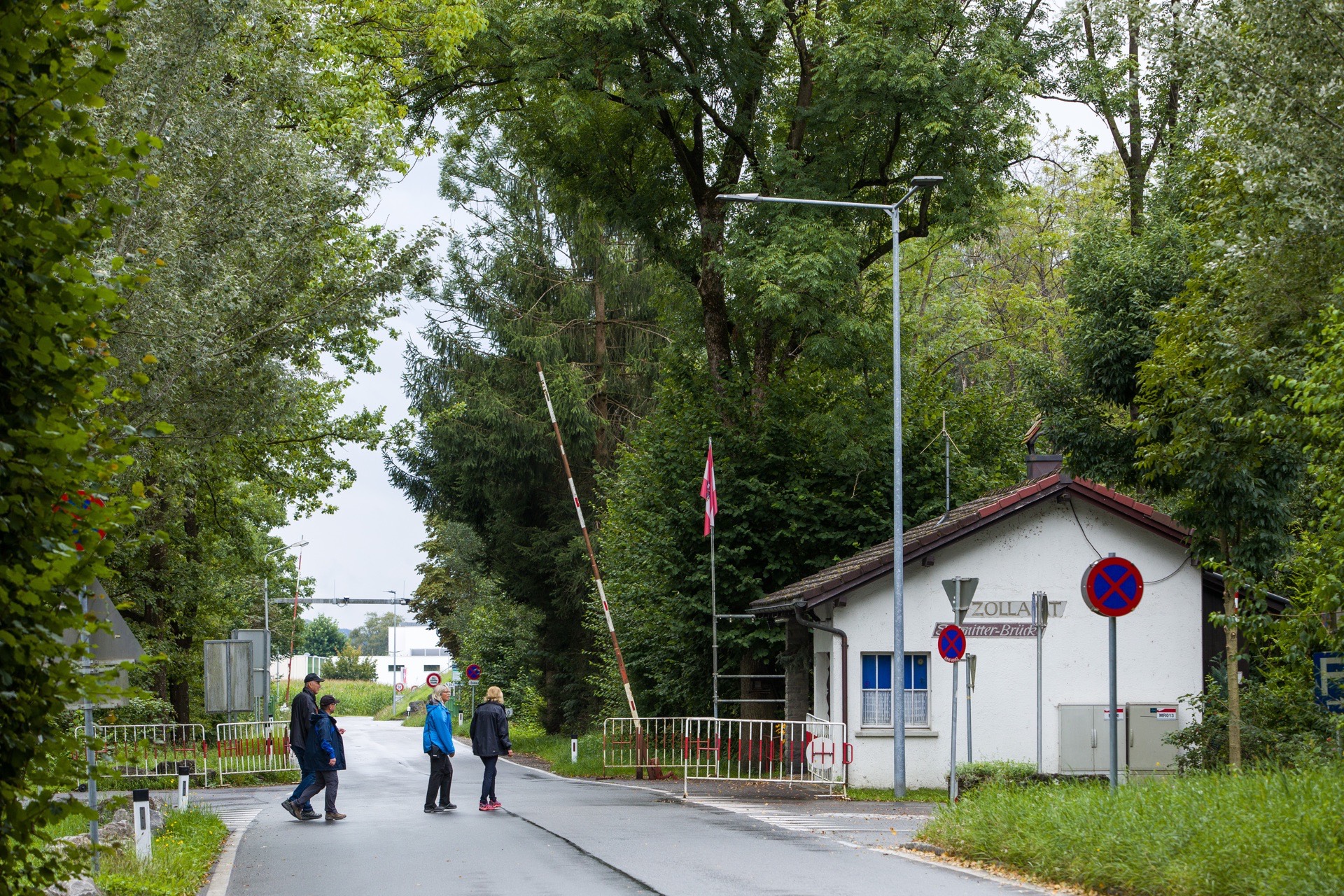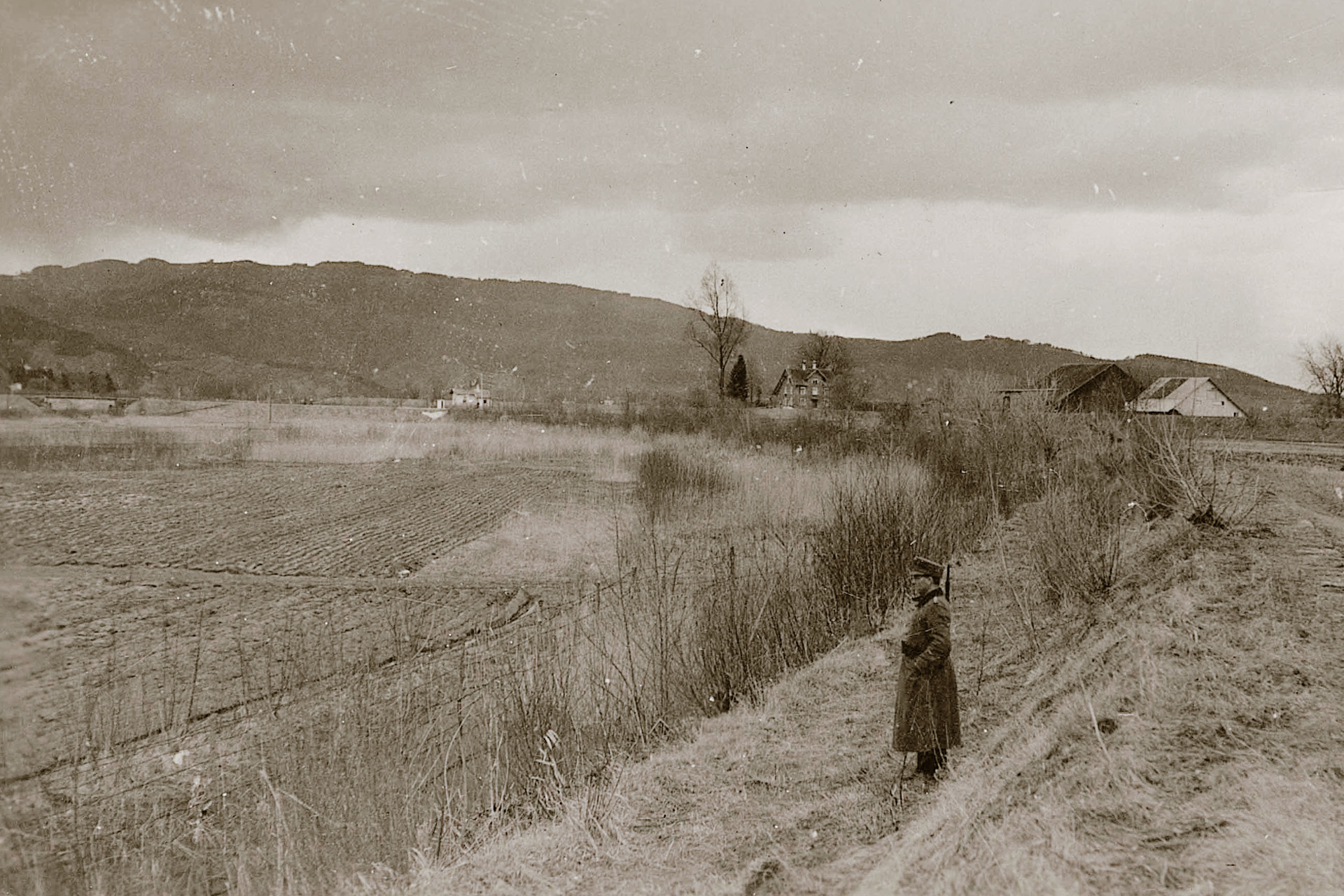Jakob Spirig> 1938 - 1942
19 Jakob Spirig
“We were young lads back then, we didn't have much money”. The Diepoldsau escape helper Jakob Spirig
Hohenems – Schmitter, 1938 to 1942
The unskilled worker Jakob Spirig, born in 1919, lived in Diepoldsau, Switzerland, close to the Austrian border. In 1938 and the years after, the experienced smuggler helps many Jewish refugees to cross the border illegally in exchange for a few marks. After a failed escape aid operation in 1942, in which four of five Berlin women were caught by the German border guards, Spirig was sentenced to three months in prison in Switzerland - and only rehabilitated after his death in 2004.
“From here we brought the Jews to Switzerland.... We are here behind the customs office, at the Austrian customs office we are behind the customs office, we are directly there, under the dam, forward to this little stream, and from the little stream down there, to about 100 meters further down, where the little stream flowed into Austrian waters. And from there we crossed the stream and then into Switzerland. (...) We always did that at night, in the evening, at 8 o'clock. It was in autumn, or depending on the time, but always in the dark. And we knew exactly when the Swiss border guards relieved us, let's say at 8 o'clock, then we heard the border guard marching up and the other one marching down, and in the meantime we passed through. (...)
These orders... we were young boys then, we didn't have much money, and we always went on foot on Sunday, or during the week, when we didn't have any work, we went to the Hotel Freschen or Restaurant Freschen in Hohenems, because a glass of beer there cost 15 centimes, and then the waitress's daughter told us that there were still Jews here who wanted to go to Switzerland. Whether we would take them with us, they would pay us 4 or 5 marks and of course, that was good money for us and then we took them all with us. And we led them from Hohenems to the customs office here and then we went through the customs office and to the border and then up.
(...)
Sometimes we took it very comfortably: We sat here on the board and took off our shoes and walked across the little stream. And on the other side we dried our feet again and put our shoes on. And otherwise, maybe we picked up an older woman or an older man and carried him across. Then, when everything was all right, we marched. When the coast was clear. (...)”[1]
Recommended reading:
Stefan Keller, Grüningers Fall. Geschichten von Flucht und Hilfe. Zurich 1993 (1998); Jörg Krummenacher, Flüchtiges Glück. Die Flüchtlinge im Grenzkanton St. Gallen zur Zeit des Nationalsozialismus. Zurich 2005.
[1] Interview with Jakob Spirig, in: „Heimat, fremde Heimat“ (Markus Barnay, ORF 2002).

Patrol on the border path between the Hohenems customs office and the Schmitter customs office, May 1940.
Archiv der Finanzlandesdirektion, Feldkirch
19 Jakob Spirig
“We were young lads back then, we didn't have much money”. The Diepoldsau escape helper Jakob Spirig
Hohenems – Schmitter, 1938 to 1942
The unskilled worker Jakob Spirig, born in 1919, lived in Diepoldsau, Switzerland, close to the Austrian border. In 1938 and the years after, the experienced smuggler helps many Jewish refugees to cross the border illegally in exchange for a few marks. After a failed escape aid operation in 1942, in which four of five Berlin women were caught by the German border guards, Spirig was sentenced to three months in prison in Switzerland - and only rehabilitated after his death in 2004.
“From here we brought the Jews to Switzerland.... We are here behind the customs office, at the Austrian customs office we are behind the customs office, we are directly there, under the dam, forward to this little stream, and from the little stream down there, to about 100 meters further down, where the little stream flowed into Austrian waters. And from there we crossed the stream and then into Switzerland. (...) We always did that at night, in the evening, at 8 o'clock. It was in autumn, or depending on the time, but always in the dark. And we knew exactly when the Swiss border guards relieved us, let's say at 8 o'clock, then we heard the border guard marching up and the other one marching down, and in the meantime we passed through. (...)
These orders... we were young boys then, we didn't have much money, and we always went on foot on Sunday, or during the week, when we didn't have any work, we went to the Hotel Freschen or Restaurant Freschen in Hohenems, because a glass of beer there cost 15 centimes, and then the waitress's daughter told us that there were still Jews here who wanted to go to Switzerland. Whether we would take them with us, they would pay us 4 or 5 marks and of course, that was good money for us and then we took them all with us. And we led them from Hohenems to the customs office here and then we went through the customs office and to the border and then up.
(...)
Sometimes we took it very comfortably: We sat here on the board and took off our shoes and walked across the little stream. And on the other side we dried our feet again and put our shoes on. And otherwise, maybe we picked up an older woman or an older man and carried him across. Then, when everything was all right, we marched. When the coast was clear. (...)”[1]
Recommended reading:
Stefan Keller, Grüningers Fall. Geschichten von Flucht und Hilfe. Zurich 1993 (1998); Jörg Krummenacher, Flüchtiges Glück. Die Flüchtlinge im Grenzkanton St. Gallen zur Zeit des Nationalsozialismus. Zurich 2005.
[1] Interview with Jakob Spirig, in: „Heimat, fremde Heimat“ (Markus Barnay, ORF 2002).

Patrol on the border path between the Hohenems customs office and the Schmitter customs office, May 1940.
Archiv der Finanzlandesdirektion, Feldkirch



